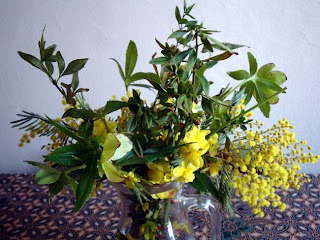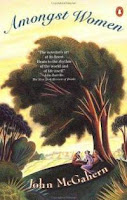 |
| Rodin: The Centauress |
This is the really scary bit - I've just finished the first draft of a fictional project I've been working on for a while. A difficult story with a complicated plot, set in Istria - a traditionally Italian area of Croatia. The two central figures are an elderly painter, Xenobia, who has led a controversial life, and her biographer, Alex, recently bereaved and trying to find the narrative of her own life again. I have no idea whether it will interest anyone other than myself. I've been so immersed in it, I haven't been able to stop to think about what anyone else might think! So, before I spend precious weeks re-writing and editing, I need to know if a reader would be interested enough to read on after the opening pages. These first pages are critical in any book - if you're not hooked by page 3 you usually give up. That's why I'm pasting them below and would really appreciate honest, straight-forward comments from my lovely blog-readers. Would you want to read on? Or would you not? You don't have to be tactful! If you'd like to email me your comments you can do that on kathyferber@yahoo.co.uk
The Centauress (working title)
Chapter OneLondon, October 2003
‘So, how would you feel about writing this book?’ Jane asked, a forkful of spinach and mozzarella pizza poised halfway between plate and mouth.
Alex had realised how far down the ratings she’d sunk when her agent had asked her out to lunch and then suggested a Pizzeria on the South Bank rather than one of the smart bistros and wine bars that Jane usually favoured. But in fact, considering her own long silence, the unanswered emails and the abandoned book contract, it was a miracle that Jane was still speaking to her at all.
‘Xenia’s marvellous,’ Jane put down her fork. ‘So articulate! And only the tiniest bit ga-ga - she’s so eccentric you don’t even notice. But apparently she’s very ill and it’s going to be vital to get everything down quickly before she deteriorates.’
Even before the menus had arrived, Alex had been aware that this lunch was simply an excuse for her agent to sell the notion she’d had on her recent holiday in a fortified village in Istria, owned by someone Jane described as ‘the most extraordinary person I’ve ever met’.
‘Xenia lived in England and America, knew Lucien Freud and Francis Bacon, stayed in Paris with Picasso. She even painted Marilyn Monroe for god’s sake!’
Xenobia de Braganza, one of the most famous living painters, the grande dame of the Veneto, who owned an entire Istrian hill village rented out to tourists in the summer (hence Jane’s visit) but in the winter filled it with her friends, creating a colony of artists and simpatici.
‘She seemed to like the idea,’ Jane said. ‘Wants to tell the truth while she’s alive so that people can’t tell lies after she’s dead. And I’ve talked to her London agent - no problems there. It would be a good excuse for a retrospective in the Tate Modern. Bloomsbury might be interested, and Harper Collins, providing I can get a good writer. So I thought of you. A spell in Istria might cheer you up.’
Alex suppressed a sudden impulse to hit Jane hard across the face. The surge of anger was so strong and physical, Alex could taste the bile in her mouth. But, thanks to the little blue capsules of anaesthetic, prescribed by the doctor, Alex managed to contain her rage. Why Jane should think a holiday would cure what she’d just been through was in-comprehensible. Alex could only assume Jane had never experienced any kind of family tragedy or real pain in her entire life. Alex’s whole world, her way of seeing everything was irrevocably altered. It was like going back to the Tate Gallery after having become colour blind; the paintings would be there, still the same, but all the colour and life would have gone out of them. There would be no point.
Alex hasn’t written a word in almost two years. The grief counselor she’d been assigned afterwards, had recommended that she kept a journal to record her thoughts and feelings, but the journal too has remained obstinately blank. The feeling still persisted that there was no point in anything any more, but the grant from the Royal Literary Fund was almost spent and her small legacy down to single figures.
The flush of anger receded, leaving Alex feeling slightly shaky. She held her tongue between her teeth for a moment longer and then asked. ‘What’s the advance?’
‘We’ll have to negotiate that. But her agent seems to think they can cover all your expenses to go out there on an initial visit - see how you get on with her, whether you like the idea. Get a synopsis together based on the published material - there’s loads apparently. Then I’ll try to sell it while you’re out there. You speak Italian don’t you? Of course it's Croatia now, but Istria used to belong to Italy before it was Yugoslavia and they still speak the language.’
Alex looked out of the window. It was a cold autumn day with persistent drizzle. Pedestrians in gloves and scarves were scurrying along the concrete walk-way of the South Bank. An unkind wind was whipping the Thames into spiky waves. Jane had just been talking about Istrian sunshine, the citrus odour of the lemon tree below her window, describing the sunset in the Adriatic. Alex was conscious of a great longing for warmth, colour and light. Could she write this book? Was she actually still capable? It was the first time in two years that Alex had felt even the stirrings of an inclination.
Alex spent the rest of that grey afternoon in the National Portrait Gallery looking at a canvas by Francis Bacon, early work but still with the characteristically dramatic strokes, the cruel drawing out of the figure. Xenobia de Braganza’s name was on the label, but the painting didn’t give any clues to the reality of her appearance or character. In another room was a photograph of her aged twenty five by Man Ray - a dark unruly head sculpted by light, jutting, furious brows, half closed eyes and the most beautiful, androgynous face Alex had ever seen. The strong bone structure, voluptuous lips and brooding eyes could have belonged to either sex. This was no ordinary person. It was that face that decided her to tackle the biography.
~~~~~~~~~~~~~~~~~~~~~~~~~
That's Chapter One - all comments gratefully received. Now I'm off to England for a brief visit to look after my small grand-daughter Isabella for a few days while my daughter is at a conference. I'm really looking forward to spending time with her and hoping the English weather will be better than the Italian - which is still below zero. Some parts of Italy have had 3 metres of snow, as far south as Sicily. The worst winter in generations - that's what they're calling it.































